As a detective in the Philadelphia Police Department’s Recruit Background Investigations Unit, Jennifer Gugger was tasked with determining whether job applicants had done anything — or posted anything to their social media — that should disqualify them from joining the force.
But last week it was Gugger’s own social media posts that led to trouble. She reportedly posted on Facebook to say that she was in DC on Wednesday for President Donald Trump’s “Stop the Steal” rally, which ended in a violent takeover of the US Capitol that left five people dead, including a Capitol Police officer. Then on Friday she reportedly tweeted that Vice President Mike Pence was “a traitor and a cabal operative and a pedophile,” according to the Philadelphia Inquirer, which posted screenshots before her account was deleted.
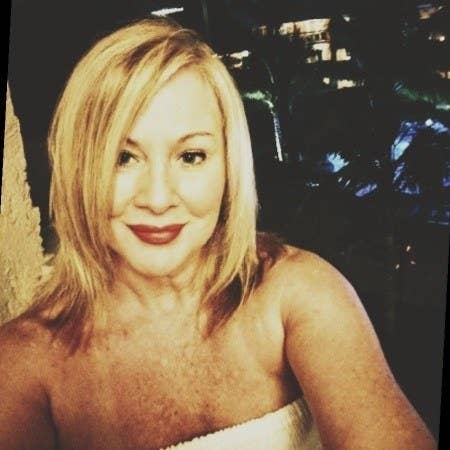
The department reassigned Gugger out of the background check unit, took her gun away, and opened an investigation into whether she had violated any policies. Gugger did not respond to a request for comment.
Department officials declined to comment further, but a lieutenant in the department, who requested anonymity because he wasn’t authorized to speak on the matter, said he believes the Gugger incident is “just the tip of the iceberg.” Many officers in his department, he said, believe the election was stolen from Donald Trump. He called it “very, very scary.”
Police departments across the country face a growing problem, one that was thrown into sharp relief by the storming of the Capitol last week: Many officers do not accept the political process that awarded Joe Biden the White House. Some even hold the belief that their duty to protect and serve extends to helping overturn the outcome of the election.
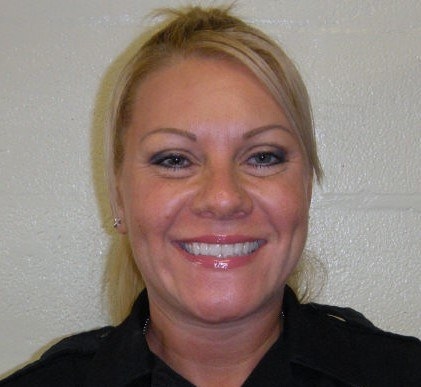
At least 28 off-duty law enforcement officers from around the country are known to have attended the Trump rally in DC on Wednesday, according to a review of local news reports and department statements. In the subsequent days, at least 19 agencies in 13 states have announced investigations into whether their officers violated internal policies or criminal laws in DC.
Many of these incidents only came to light after the officers themselves brazenly posted about it on their own social media. Lt. Roxanne Mathai, who works for the sheriff’s office in Bexar County, Texas, near San Antonio, put up pictures of herself inside the Capitol. “Today has been amazing!” she wrote. She did not respond to a request for comment.
Residents of Troy, New Hampshire, called for police Chief David Ellis to resign after a New York magazine article identified him as one of the protesters at the rally, though Ellis condemned the violence and said that though he attended the rally, he didn’t join the invasion of the Capitol. Ellis could not be reached for comment.
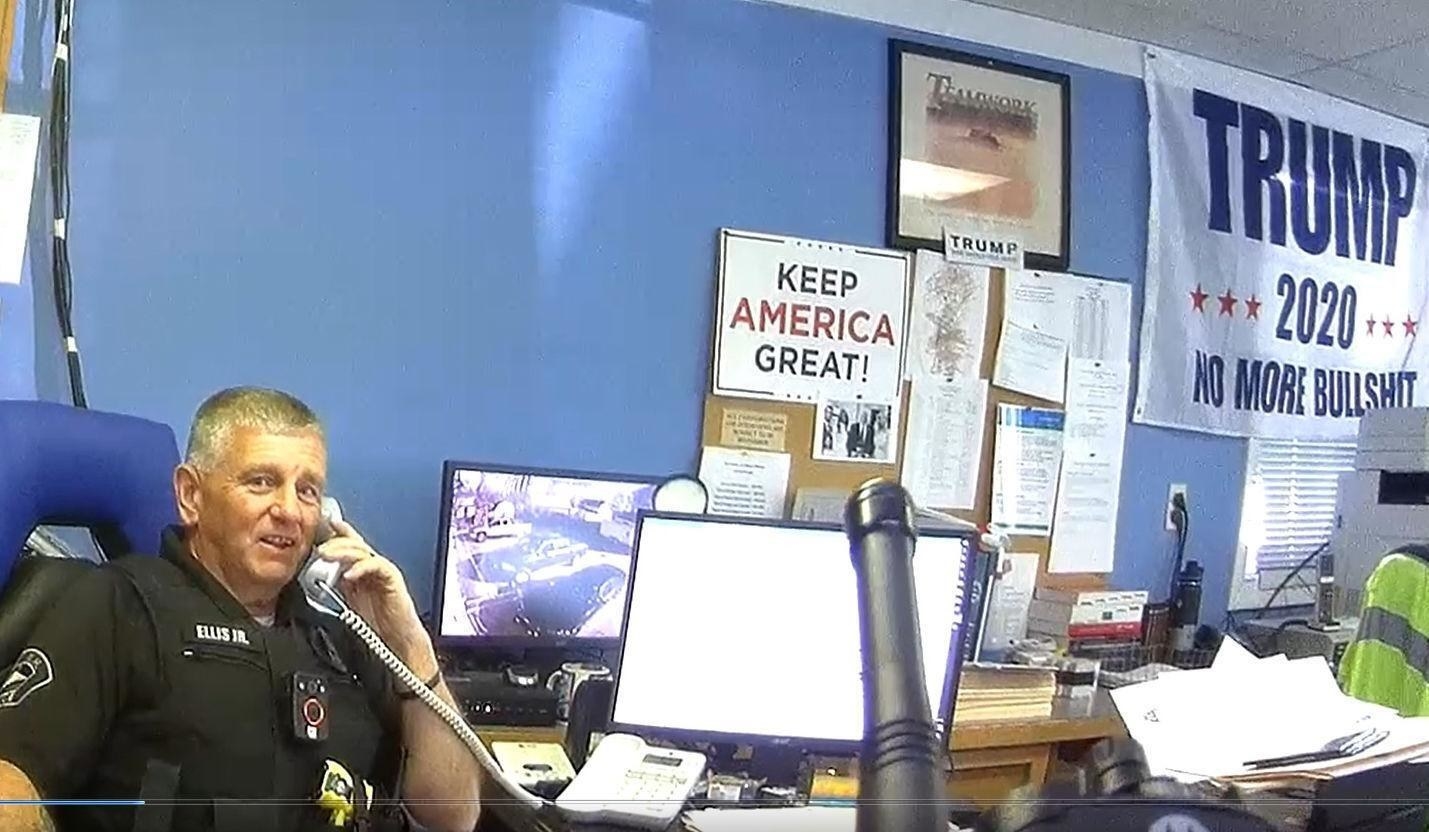
Chris West, sheriff of Canadian County, Oklahoma, admitted in a press conference that he carried a Trump flag to the Capitol but said that he didn’t enter the building, adding, “I didn’t see the violence; I don’t know when it happened.” West did not respond to a request for comment.
To some officers watching the events unfold on their television screens, the fact that off-duty cops traveled to DC to protest a free and fair election alongside white nationalist groups was only the latest sign of a heightening radicalization among the country’s law enforcement ranks — one that they say departments should have seen coming and done more to stop.
“When it comes to white supremacist beliefs and ideas like that, the nationwide mentality is to downplay it or overlook it,” said Stanley Jean-Poix, a sergeant in the Miami Police Department and president of the Miami Community Police Benevolent Association, a union that represents around 60 officers, most of them Black. “If you enable certain attitudes and they go unchecked, it turns into a monster.”
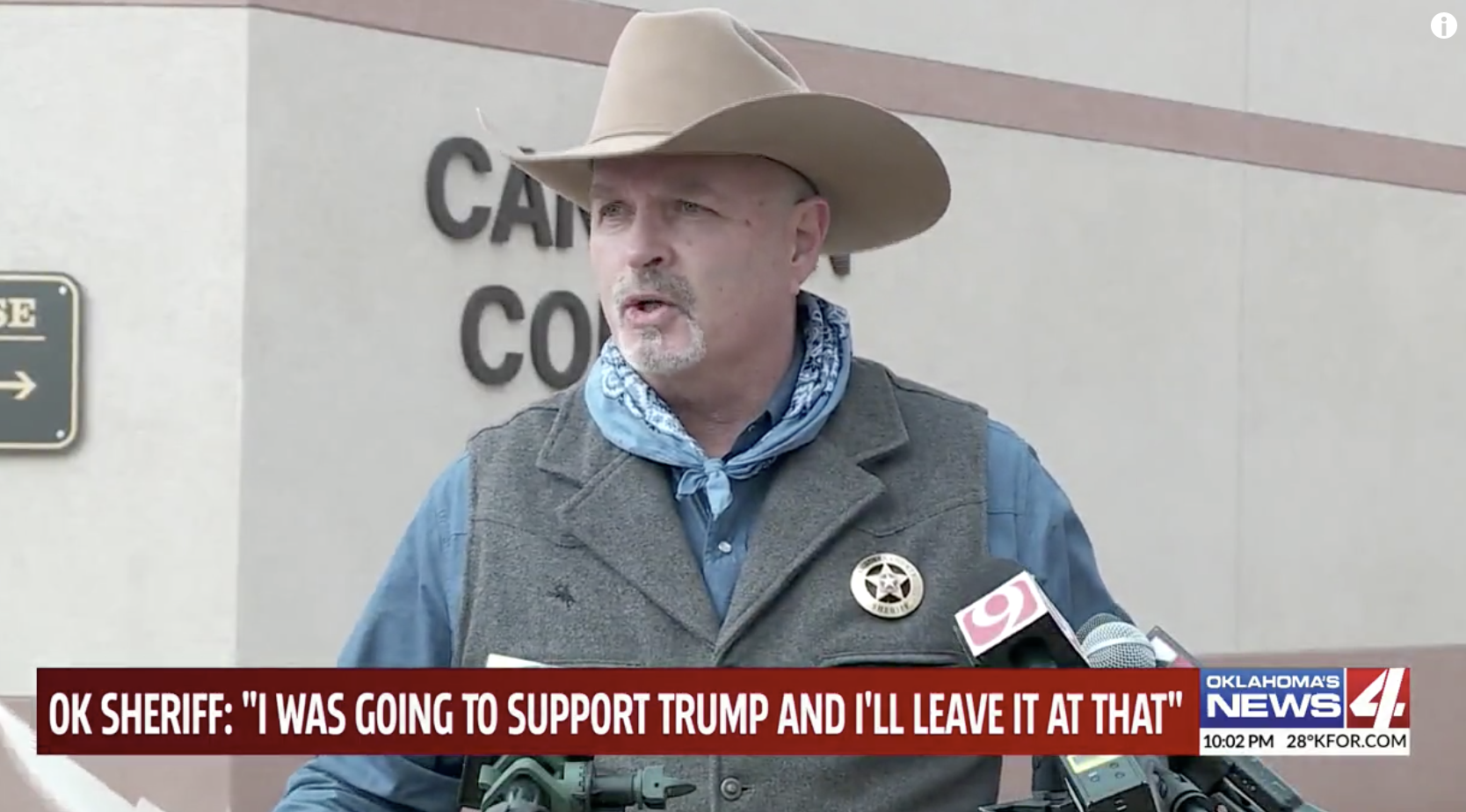
Longtime officers told BuzzFeed News that the racial and political tensions of the past decade have created a widening divide within police departments. On one side stand officers calling out racism and unnecessarily brutal tactics among their colleagues. On the other are officers who believe their profession has been unfairly targeted by left-wing activists and politicians who fail to grasp the dangers they face on the job; for these officers, Trump emerged as a hero. And when the president called on his supporters to defend him against what he described as a conspiracy to remove him from power, some officers took action.
Thomas Robertson, a police supervisor in the Rocky Mount, Virginia, department, went to DC and entered the Capitol with a fellow officer “to actually put skin in the game and stand up for their rights,” he wrote in a Facebook comment on a photo showing him and his colleague, Jacob Fracker, posing in front of a statue in the building. “If you are too much of a coward to risk arrest, being fired, and actual gunfire to secure your rights, you have no words to speak I value [sic]. Enjoy your feel good protests and fame. I’ll simply accept a ‘Thank you’ for the very blanket of freedom that you live and sleep under.”
In his own Facebook posts defending his actions, Fracker said “Sorry I hate freedom?” and claimed that he was fighting against “tyranny.” Robertson and Fracker could not be reached for comment.
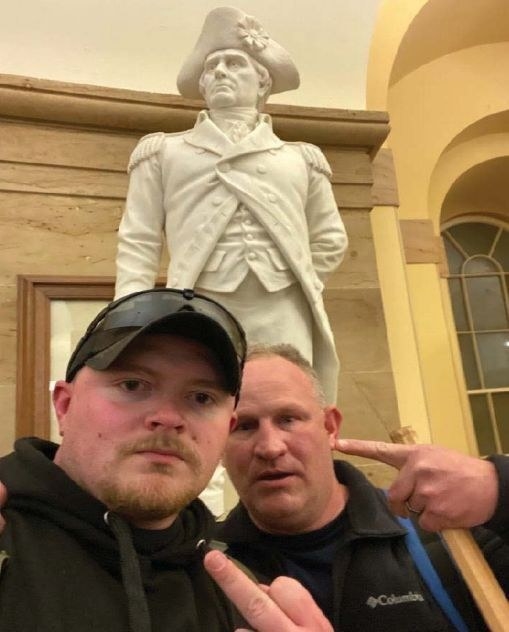
The department placed both officers on administrative leave pending an internal investigation, and federal prosecutors charged them with disorderly conduct and illegally entering the building. In an interview with the Roanoke News, Robertson said they believed they were in the Capitol legally because “the door was wide open and police officers were actually handing bottles of water out to people that came in.”
Some Black officers traced the roots of their white colleagues’ allegiance to Trump to the protests that erupted in 2014 after an officer in Ferguson, Missouri, fatally shot Michael Brown, a Black 18-year-old who was unarmed. As a large swath of the country denounced police violence and the Obama administration opened a series of federal investigations into departments across the country, many officers closed ranks, deeming those who criticized them enemies to law and order.
Heather Taylor, a sergeant with the St. Louis Metropolitan Police Department at the time, noticed fellow cops writing Facebook posts calling racial justice protesters “thugs,” “criminals,” and “rioters,” a change in tone she didn’t expect from colleagues she’d respected. “They were just angry and fed up,” she said. The term “Blue Lives Matter” soon emerged as a rebuke to the Black Lives Matter movement, a shorthand way of suggesting that criticisms of police violence were creating a dangerous climate for law enforcement.
Many officers found allies among those who defended them, including the militia groups, such as the Three Percenters, and right-wing extremist organizations, such as the Proud Boys, who began showing up at racial justice protests with the stated purpose of helping officers keep the peace.
But white officers upset about the racial justice protests had no bigger ally than Trump, who as a presidential candidate in 2016 offered the loudest voice echoing the complaints of disgruntled police officers, winning the endorsement of the country’s largest police unions in the process. In his speech at the Republican National Convention that year, Trump claimed that the Obama administration had enacted a “rollback of criminal enforcement,” and in a speech months later, he told a roomful of police officers in Long Island, New York, that “the laws are stacked against you.”
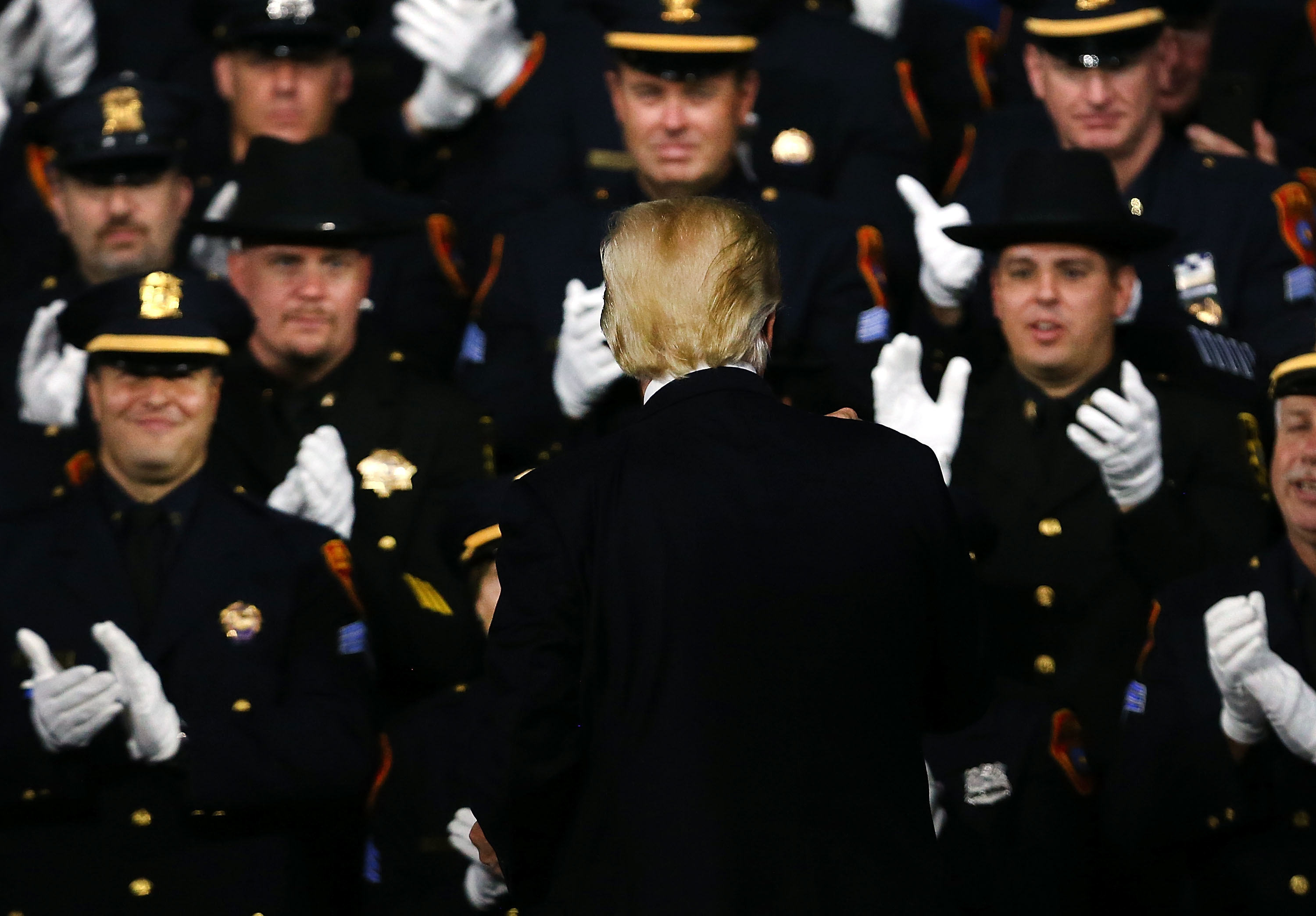
“A lot of these officers were obsessed with him,” Taylor said.
“He said what they wanted to hear,” said Charles Wilson, a police officer for 45 years who retired in 2016 and now serves as chair of the National Association of Black Law Enforcement Officers. “Police officers want to feel that their work is honored. They want to feel that it is legitimate, that it is appreciated. And when people find fault with what they're doing, that tears into that perception. Trump came along and told them that he disapproved of the people who complained about them, that the things they were doing were appropriate and correct, whether it was true or not.”
The presence of white supremacist ideology in police departments is as old as law enforcement in the US, and Black officers who spoke to BuzzFeed News said they signed up for the job knowing that some of their colleagues were probably racist. But in their experience, the rise of Trump set back relations between Black and white officers in many departments.
“They felt more emboldened,” said Sonia Pruitt, who worked as a police officer in Montgomery County, Maryland, for three decades before retiring in July. “They felt like it was OK to be more expressive of how they felt about politics. I was stunned. They were coming right out with it, not even hiding it anymore.”
In recent years, investigations by BuzzFeed News, HuffPost, and Reveal have exposed thousands of racist comments and memes posted by law enforcement officers on social media. That so many officers felt comfortable openly expressing their racism reflected the fact that their departments paid little mind to their public postings.
Jean-Poix, the Miami sergeant, was stunned to learn that even the largest and highest-funded departments had “no one to monitor the social media of officers,” he said. “If they want to find it, it’s there, but [police leaders] give them a pass, so the culture continues to develop.”
Leaders of the police unions that defend officers from discipline have been among those caught making racist statements, and in recent years a growing share of Black officers have left the country’s largest police unions and instead joined alternate unions organized specifically for Black members.
Sometimes complaints about an officer’s racist statement came from within the department. Jean-Poix and Taylor recalled informing superiors about white officers overheard using the n-word, only for those officers to receive nothing more than a reprimand.
“Why should that change when no one holds them to account?” said Pruitt.
Departments have said that free speech rights prevent them from disciplining officers for their beliefs without evidence that those beliefs impact their ability to do their job. When an officer in Philadelphia with a tattoo of an image associated with Nazi Germany was cleared of wrongdoing by the department in 2017, a spokesperson told BuzzFeed News, “In terms of your brains or your thoughts or your ideology, is that something we want to police?”
More than a dozen Black officers who’ve spoken about the issue to BuzzFeed News in recent years expressed concern for what they saw as a double standard that left their lives in the hands of colleagues they’d lost trust in. “A culture of law enforcement that has repeatedly appeased white protesters, white extremist groups, and white supremacy,” said Taylor.
A 2015 FBI policy guide obtained by the Intercept and a 2020 report by a former FBI counterterrorism agent chronicled evidence that white supremacists have infiltrated police departments. “The federal response to known connections of law enforcement officers to white supremacist and far-right militant groups has been strikingly insufficient,” wrote the former agent, Mike German. “Any law enforcement officers associating with these groups should be treated as a matter of urgent concern.”
As Trump’s term comes to an end, officers loyal to him have accepted his lie that the election was rigged against him. Some officers, including Philadelphia detective Gugger, promoted QAnon, a mass delusion that claims a cabal of satan-worshippers who sexually abuse children are behind the effort to remove Trump from power. The FBI has deemed proponents of the conspiracy a potential threat for extremist violence. In October, Gugger changed her Facebook profile picture to an image referencing QAnon, the Philadelphia Inquirer reported.
The news organizations reporting that there was no evidence of fraud were the same ones that put a spotlight on police violence. The right-wing politicians and pundits who repeated Trump’s lies were the same ones who deemed Black Lives Matter protesters rioters and looters. The militias and extremist groups who gathered in DC to call for the election results to be overturned were the same ones who waved Blue Lives Matter flags and clashed with racial justice protesters.
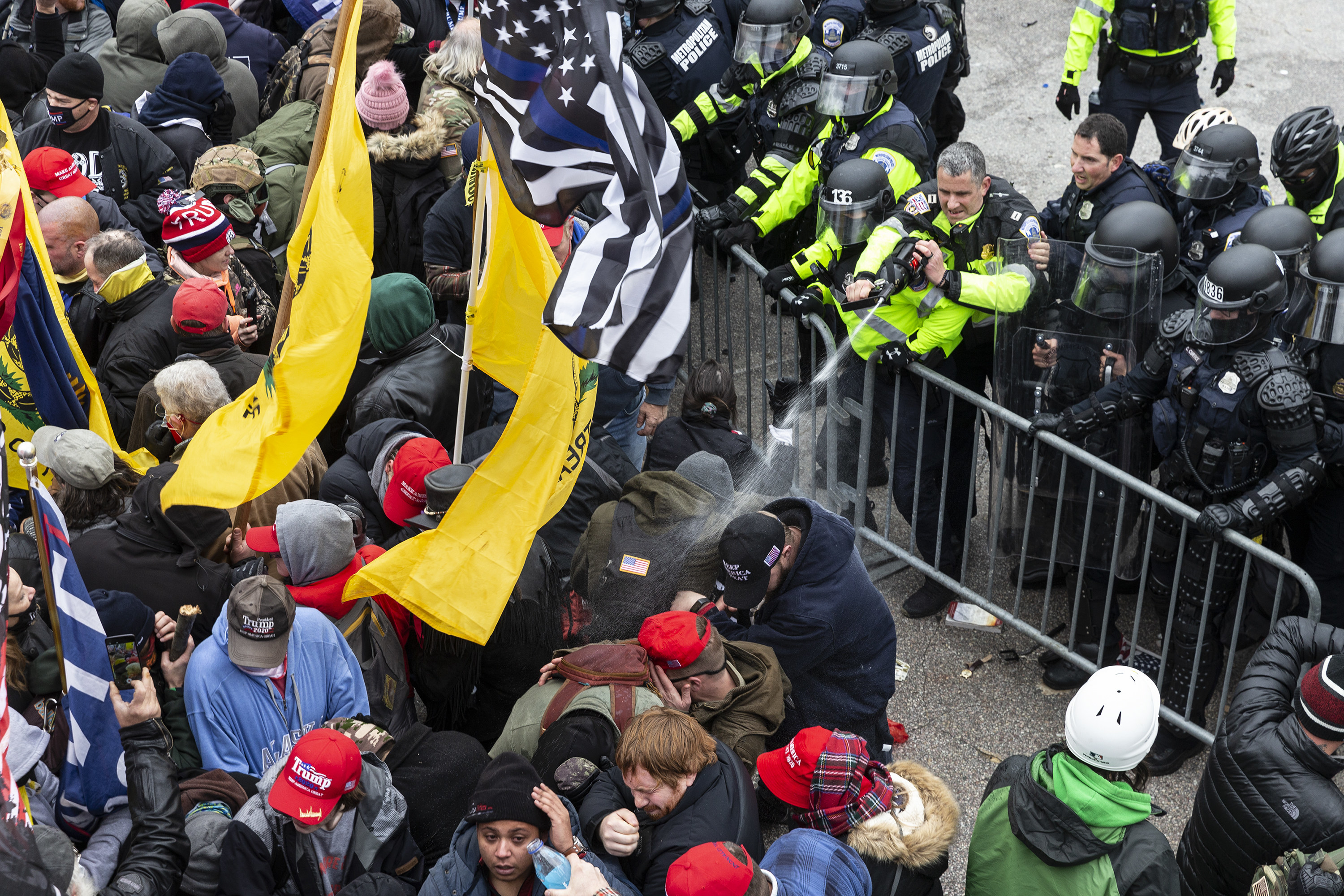
When those extremists attacked police officers at the Capitol, “it was white police officers who were shocked,” said Taylor, the St. Louis sergeant, who retired in October. “Black police officers, we knew it was coming. We know what white nationalists are. For white officers, it was a different experience to see who turned on them. How could you ever think that an extremist group was ever pro–law enforcement? For four years, you bought into Donald Trump. You bought into this fallacy.”
In the wake of last week’s violence, local police departments face the task of figuring out what to do about their radicalized officers.
While most departments that have made public statements on the incident have expressed that officers are free to protest the election results as long as their actions don’t cross the line into criminality, at least three law enforcement institutions have indicated that officers could be disciplined for supporting the insurrection even if they were nowhere near the Capitol.
Oakland’s police department said in a statement that it “will not allow any members to engage in or support this type of content and will root out this conduct anywhere within the Department."
The Sedgwick County, Kansas, Sheriff’s Office opened an investigation into Lt. Jason Gill in response to public outrage about his Facebook post stating, “If you are a police officer in Washington, D.C., or a federal officer working in the Capitol, remember that the people in these rallies are on your side. Remember your oath before your orders.” Gill could not be reached for comment.
Vermont’s attorney general, T.J. Donovan, called on the state police to terminate an officer, Lucas Hall, who didn’t attend the DC rally but showed support for the riot in a Facebook comment stating, “We are beginning to see good, law-abiding citizens stand against a corrupted Government.”
“He can’t be a sworn police officer, sworn to uphold the Constitution, and publicly support or condone a violent overthrow of our constitutionally elected government,” Donovan told Seven Days, a local news organization. “We can’t tolerate this. We can’t normalize what happened yesterday in Washington.”
Hall was suspended by the department, then resigned on Tuesday. He could not be reached for comment.
Back in Philadelphia, the lieutenant who spoke to BuzzFeed News said he hoped the events of last week force departments to “take a long hard look at their policies and procedures” for screening out officers who engage in extremist behavior. But he remains disheartened that Trump “has managed to twist people’s ideas and control people's minds.” He said he wonders how many right-wing radicalized officers will never be identified, even as they continue to patrol the streets.
“Once President Biden is sworn in, these individuals will crawl under their rock and hide behind the anonymity of their badges,” he said, “and nobody will know who they are and that they were involved in those types of activities.” ●
